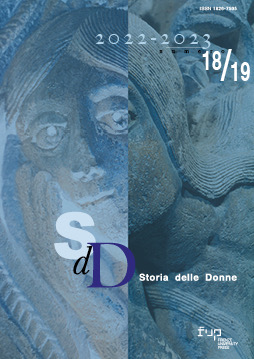Published 2023-08-03
Keywords
- English Revolution,
- radical sects,
- Quakerism,
- women’s prophecy,
- women’s writing
- travel ...More
How to Cite
Copyright (c) 2023 Stefania Arcara

This work is licensed under a Creative Commons Attribution 4.0 International License.
Abstract
This essay investigates the extent to which, in 17th-century revolutionary England, religious ideology enabled women of radical sects, particularly of the Quaker movement, to gain spaces of freedom. «Moved of the Lord», leaving behind children and husbands, they crossed the boundaries of domestic space as well as those of silence and obedience. The essay examines two exemplary texts of the period, also providing a stylistic analysis: Katherine Evans’ and Sarah Cheevers’ account of travel and incarceration in the prisons of the Inquisition and Hester Biddle’s invective addressed to the universities of Oxford and Cambridge, texts in which the authors deploy a series of rhetorical strategies, subversions of the biblical text and argumentative acrobatics, confronting the limits imposed on women by religious discourse itself. Through their public speaking out, these women launched a direct attack on political and religious authorities and, by trespassing into the realm of writing, helped to pave the way for later women writers in English literature, who shared the courage to overcome the material and symbolic limits imposed on women.

